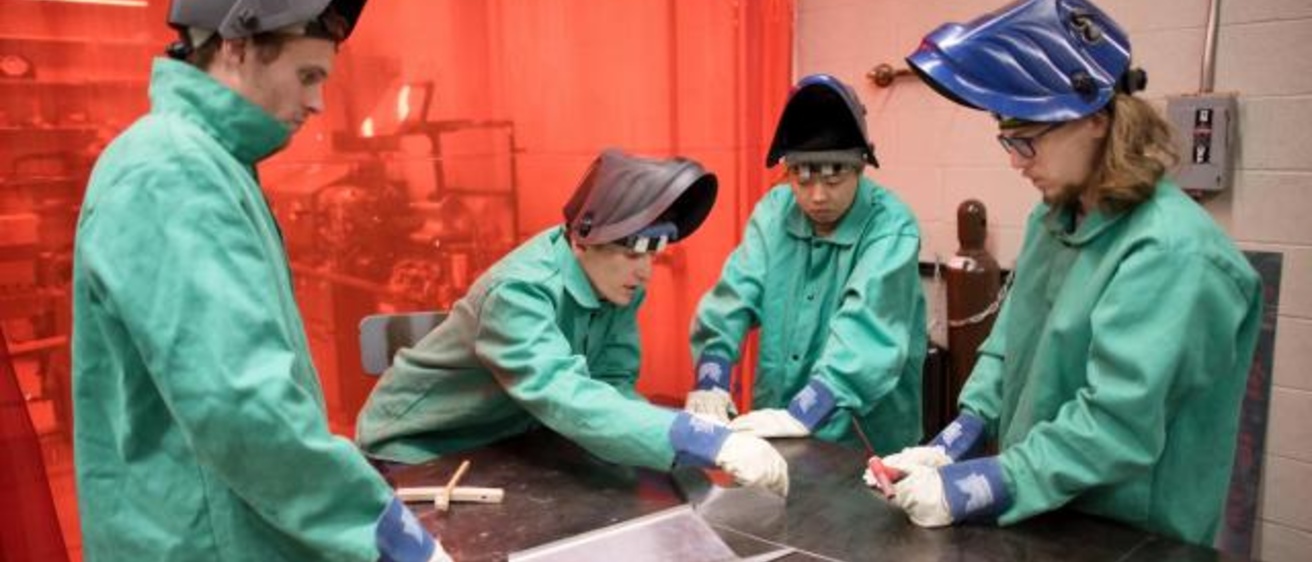By Lynn Anderson Davy
University of Iowa Strategic Communication
An innovative program that puts University of Iowa engineering students in the driver’s seat of an international design project has a new academic partner—the Hong Kong University of Science and Technology—and a renewed commitment from long-time partner Aix-Marseille University of France.
Since it was founded by the University of Iowa and Aix-Marseille University two decades ago, the Virtual International Project Team (VIPT) program has helped many engineering students experience the challenges of working on an international project with teams from different cultures and in different time zones. College of Engineering administrators say that the addition of the Hong Kong University of Science and Technology (HKUST) will give the program a broader international scope and provide students with more study options.
“Hong Kong is not only a vibrant and culturally diverse city, but also a major financial hub,” says Ching-Long Lin, professor and departmental executive officer of the UI’s Department of Mechanical and Industrial Engineering. “This new partnership with the HKUST will allow our students to interact with students who have different but also very complementary perspectives. We believe this new partnership will further enrich students’ design challenge experience.”
The Virtual International Project is one of several design challenge programs offered to UI undergraduates during their senior year, and seniors must complete one in order to graduate. The Virtual International Project teaches students how to manage a complex design project, including how to read dense building specifications, take on leadership roles, and meet deadlines. There are other hurdles as well.
Matias Perret draws on a glass surface during a recent meeting with students participating in the Virtual International Project Team program. Photo by Justin Torner.
“The product design process has to take into consideration technological, environmental, and economic constraints,” Lin says. “These constraints vary depending on the product’s geographic home. Through international projects, our students learn about these constraints in order to improve product design.”
In January, a group of seven students spent 13 days in France, including four at the Aix-Marseille University. In March, three students will travel to Hong Kong to meet with Chinese students and to participate in the sixth IMechE Greater China Region Design Competition, an annual collegiate event that this year will focus on robotics and the mining industry.
Seniors Samuel Fox, an industrial engineering major from Grovetown, Georgia, and Wenbo Wang, a mechanical engineering major from China, are participating in the design competition. They are working with HKUST students to design a bucket-and-water–powered pulley system to handle iron ore. On a recent afternoon, the two spent time in a basement workshop of the Seamans Center for the Engineering Arts and Sciences finalizing the measurements of their design on a laptop and inspecting cut metal pieces for their bucket.
“We email our team members in China often, but we’ve only been able to video conference twice due to the 13-hour time difference,” Fox says. “It has surprised me how difficult the time difference has made it to set up meetings. The other thing that’s been surprising is how incredibly well the Chinese students speak English. I only speak one language and they speak two. It’s impressive.”
Members of the team of engineering students who traveled to France also were impressed by the linguistic skills of their French counterparts, who are required to give presentations in English as part of their education. UI students said they enjoyed exploring a part of the world on their own—students plan their own trip—and that the experience boosted their self-confidence. While in France, they worked with French students on the design of a heating, ventilation, and air conditioning system for the new UI Museum of Art, which is expected to open in 2019.
“It’s really important for us to experience working with people from another country and another culture,” says senior Thalia Gonzalez, a mechanical engineering major from Plainfield, Illinois. “When we enter the workforce, we will be working on international projects like this one.”
Gonzalez and other members of the team meet regularly to update their advisors—longtime coordinator of the VIPT program and College of Engineering advisory board member Dan Mineck and College of Engineering alumnus and lecturer Matias Perret—on their progress. After roughly a decade of work supporting the program, Mineck is stepping down as coordinator.
“It’s been very satisfying helping students figure out how to work around barriers to achieve success,” Mineck says.
Perret, who is sharing responsibilities with Mineck this year, is set to take over.
“I am extremely excited to have the opportunity to work with such a unique program,” he says. “My goal going forward is to continue to provide students with unique opportunities to collaborate with foreign students and to maximize their exposure to international design challenges.”
